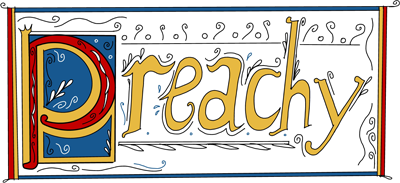
David, Goliath stereotype
 Independence Day, you’ll remember, is a pre-9/11 film chock-full -of oblivious patriotic bravado that captures peak-1990’s chauvinistic sentiment; a product placement-laden blockbuster telling the mythic tale of America’s diverse melting pot of ethno-racial caricatures uniting to take down a Big Bad Other. It is also, to me, a Jewish film.
Independence Day, you’ll remember, is a pre-9/11 film chock-full -of oblivious patriotic bravado that captures peak-1990’s chauvinistic sentiment; a product placement-laden blockbuster telling the mythic tale of America’s diverse melting pot of ethno-racial caricatures uniting to take down a Big Bad Other. It is also, to me, a Jewish film.
I was six when it first came out. This was probably a bit younger than Independence Day’s intended demographic, but I loved the movie. Yes, for the explosions. And yes for the high-stakes good guy-bad guy drama. And yes for Will Smith. And besides all of that, there was also something about Independence Day that I couldn’t fully articulate at the time: I didn’t want to be Will Smith’s cocky, badass hero. I didn’t want to be Bill Pullman’s square-jawed President Pilot ACE. I wanted to be Jeff Goldblum’s David Levinson in all his Jewish glory.
Goldblum in the 90s is the apex of U.S.-American Jewish masculinity. His back-to-back depictions of Dr. Ian Malcolm’s bespectacled, neurotic, swaggering chaos theory hero in 1993’s Jurassic Park followed three-years-later by ID’s David Levison and his cool and confident bespectacled neurotic Alpha Yid are paradoxically antithetical to everything else I’d seen of Jews in pop culture at the time.
These representations of Jewishness are shallow at best, but in an era when every demographic outside of white Anglo-Saxon men were stereotypical reductions, seeing Levinson as an asset to a story rather than a simple punchline or ancillary character for the first time in my life made me feel wanted, perhaps even needed.
ID’s Levison was also the first time I saw myself in a movie. This Jewishiness was overt, unapologetic, yet understood and even respected, and it was entirely new to me. At a time when authors like Philip Roth were deconstructing Jewish masculinity in their own problematic ways, Jeff Goldblum’s characters were rudimentary, but far more accessible.
Until ID, my only Jewish cultural touchstones came from two sources: Rugrats’ Passover and Hanukkah specials, and my classmates’ opinions of Jews as told to them by Southern Baptist pastors and parents. (To my knowledge, my family represented the entire Jewish population of Clinton, Mississippi in 1996.) Folks who “don’t hate Jews, but…” is, for me, a direct quote from the school bus.
I did eventually find a relatively comfortable place in my school’s social hierarchy, and I actually came to love my home and its complex, human residents. But to be a Jew in Mississippi is to never quite blend in with your surroundings, to first and foremost be a Jew before being a musician, class president,or homecoming date. Pop culture was an easy escapism for me, including theater experiences like Independence Day.
As a kid, I didn’t care that Levison and his father, played by an even more nebbishy Judd Hirsch, exemplified almost every perennial, troubling Jewish stereotype in the playbook — overly possessive, bookish k’vetches sympathizing with their exasperated goyim by admonishing that, “nobody’s perfect.” I barely knew what any of the stereotypes were at that age; I just knew that Jeff Goldblum could fly a spaceship and smoke cigars with Will Smith.
It’s all reductive in every wrong way, but at six years’ old, seeing such an obvious (if painfully caricatured) mirror move so assuredly through an apocalypse, impacted me in a way I wouldn’t be able to fully articulate until only recently. Somewhere in the terrible obviousness of these Goldblums, I found some level of self-actualization.
I wonder and worry everyday about how I am presenting myself in public. Do I come off as a stereotypical Jew? Do people see my attempts to subvert or distort those assumptions as too self-aware, too obvious? What’s more problematic — reinforcing tired Jewish cultural tropes, or actively, perhaps sometimes even disingenuously, resisting them? Is there any way I can simply just “be,” full-stop? I don’t have answers, but I do have that feeling of seeing myself in David Levinson for the first time as a child. For all its faults, there is something pure in that, I think: As a kid in that movie theater, I saw for the first time that even a problematic Jew like Goldblum’s could navigate an apocalypse with aplomb…because what’s more Jewish than staring down the End Times with an “I told you so” smirk?
Andrew Paul is a contributing writer for The AV Club and Input, with work also recently featured by Rolling Stone, Fangoria, GQ, NBC, as well as McSweeney’s Internet Tendency. He lives in the Heartland.
